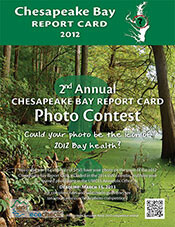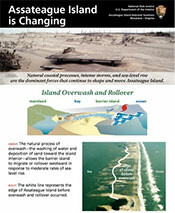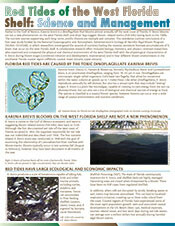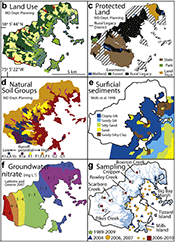IAN's social media presence
IAN is having a social media frenzy! We have fully embraced social media, and are now active on facebook, twitter, pinterest, youtube, and our IAN blog. Check out our facebook likes and check-ins, our media tweets, our pinterest photos and diagrams, and our youtube seminar videos. Bill Dennison has started his own twitter account, and he and Bill Nuttle will be blogging together on the IAN website. Feel free to post your pictures and articles on our facebook page. Tweet us if you see a cool Chesapeake Bay photo or infographic. Or just share your thoughts with us on science communication. We're excited to connect with you virtually as well as in person!The 2nd Annual Chesapeake Bay Report Card Photo Contest
 Do you have great photos from around the Bay? We want to see them! Your photo could be on the cover of the 2012 Chesapeake Bay Report Card. Last year was memorable for the hot, dry summer, Hurricane Sandy late in the year, and, of course, your experiences on and around the Bay. Submit your photos from 2012 weather events, water quality monitoring, or that monster fish that you caught, by March 15th and you could win $250, your photo on the cover of the report card, inclusion in the 2014 IAN calendar, and have your framed photo hang in the UMCES Annapolis Office. Like us on Facebook and watch as we share the winners and runners up from last year.
Do you have great photos from around the Bay? We want to see them! Your photo could be on the cover of the 2012 Chesapeake Bay Report Card. Last year was memorable for the hot, dry summer, Hurricane Sandy late in the year, and, of course, your experiences on and around the Bay. Submit your photos from 2012 weather events, water quality monitoring, or that monster fish that you caught, by March 15th and you could win $250, your photo on the cover of the report card, inclusion in the 2014 IAN calendar, and have your framed photo hang in the UMCES Annapolis Office. Like us on Facebook and watch as we share the winners and runners up from last year.
Assateague Island is Changing
 The natural geomorphological processes on Assateague Island, a Mid-Atlantic barrier island, are being exacerbated by increased storm intensity and sea-level rise, impacting the habitats and wildlife. The National Park Service Assateague Island National Seashore management is taking steps to ensure the sustainability of the park and the visitor experience. This brochure was developed for the US National Park Service as an educational tool to explain these processes and the steps the park is taking; 'promoting resilience', 'being energy smart', and 'being climate ready'.
The natural geomorphological processes on Assateague Island, a Mid-Atlantic barrier island, are being exacerbated by increased storm intensity and sea-level rise, impacting the habitats and wildlife. The National Park Service Assateague Island National Seashore management is taking steps to ensure the sustainability of the park and the visitor experience. This brochure was developed for the US National Park Service as an educational tool to explain these processes and the steps the park is taking; 'promoting resilience', 'being energy smart', and 'being climate ready'.
Red Tides of the West Florida Shelf: Science and Management
 Karenia brevis is a toxic dinoflagellate that blooms almost annually off the west coast of Florida. This newsletter and supporting fact sheet highlight the results of the NOAA ECOHAB: Karenia nutrient dynamics in the eastern Gulf of Mexico project; a five year, multi-institutional research program designed to utilize scientific expertise in a collaborative laboratory, field, and modeling program. The study aimed to identify the diverse interannual physical, chemical, and biological conditions that are responsible for K. brevis blooms on the west Florida shelf, with a specific aim of identifying and quantifying nutrient sources supporting K. brevis blooms.
Karenia brevis is a toxic dinoflagellate that blooms almost annually off the west coast of Florida. This newsletter and supporting fact sheet highlight the results of the NOAA ECOHAB: Karenia nutrient dynamics in the eastern Gulf of Mexico project; a five year, multi-institutional research program designed to utilize scientific expertise in a collaborative laboratory, field, and modeling program. The study aimed to identify the diverse interannual physical, chemical, and biological conditions that are responsible for K. brevis blooms on the west Florida shelf, with a specific aim of identifying and quantifying nutrient sources supporting K. brevis blooms.
Elucidating terrestrial nutrient sources to Chincoteague Bay
 A paper on the nutrient sources for Chincoteague Bay was published in the journal Estuarine, Coastal and Shelf Science, co-authored by various present and former IAN, Horn Point Laboratory, and Maryland Coastal Bays scientists. The paper revealed increasing terrestrial nutrient loadings to Chincoteague Bay, which helps explain the water quality degradation that had been noted in the IAN Press book Shifting Sands: Environmental and cultural change in Maryland's Coastal Bays. In short, Chincoteague Bay is becoming more like the eutrophied Delaware Inland Bays to the north and less like the relatively unimpacted Virginia seaside bays to the south.
A paper on the nutrient sources for Chincoteague Bay was published in the journal Estuarine, Coastal and Shelf Science, co-authored by various present and former IAN, Horn Point Laboratory, and Maryland Coastal Bays scientists. The paper revealed increasing terrestrial nutrient loadings to Chincoteague Bay, which helps explain the water quality degradation that had been noted in the IAN Press book Shifting Sands: Environmental and cultural change in Maryland's Coastal Bays. In short, Chincoteague Bay is becoming more like the eutrophied Delaware Inland Bays to the north and less like the relatively unimpacted Virginia seaside bays to the south.